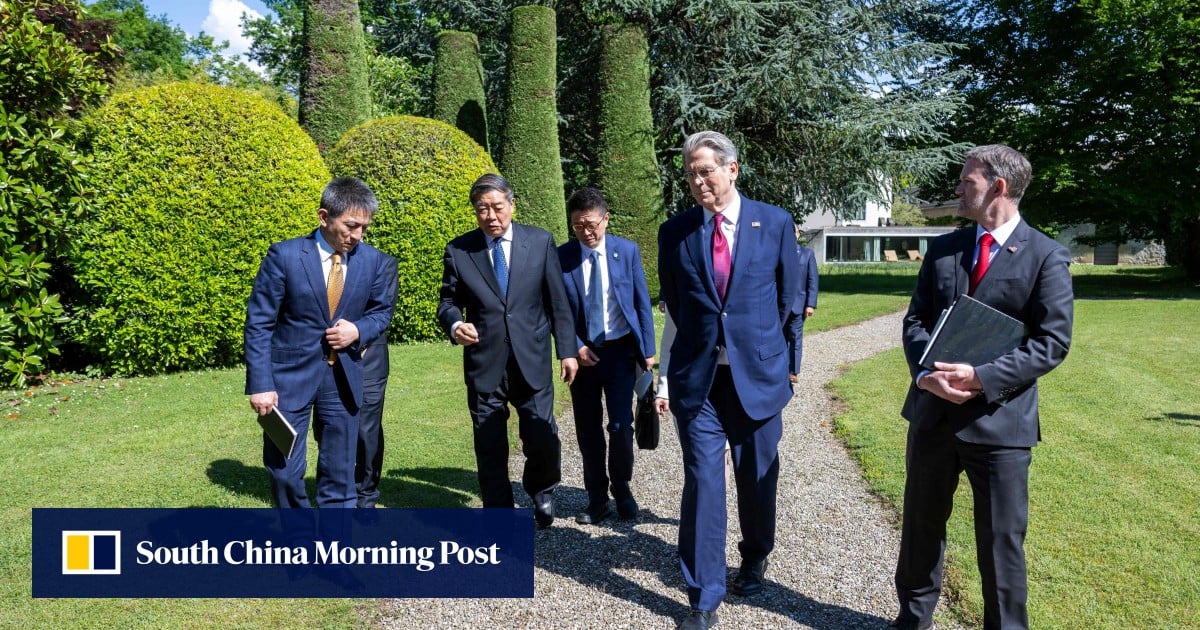The Global Spotlight: US-China Trade Talks in Stockholm
In a key moment for global economic relations, Chinese and American negotiators are set to meet in Stockholm for their third round of trade discussions on Monday. This gathering not only highlights the ongoing tensions between the world’s two largest economies but also raises intriguing questions about why Sweden has been chosen as the venue for these crucial talks.
A Historic Invitation
The backdrop of this meeting traces back to a recent convening of finance ministers from the Group of 20 countries held in South Africa. For the first time, Sweden was invited to participate, a significant step that reflects the country’s rising profile on the international stage. According to Swedish Finance Minister Elisabeth Svantesson, both the US and China approached Swedish officials with interest in hosting the talks in Stockholm. Svantesson noted in a social media post that such attention underscores Sweden’s reputation as a trustworthy nation capable of fostering dialogue.
Sweden’s Role in Global Diplomacy
The fact that the negotiations between the US and China are happening in Sweden is more than just a logistical decision. It symbolizes a broader acceptance of the country’s role as a facilitator of constructive dialogue amidst international disputes. Svantesson emphasized, “That the world’s largest economies turn to us shows that Sweden enjoys great international trust – and that we play an important role in fostering dialogue and cooperation,” underscoring the nation’s strategic importance in the global arena.
Evolution of Negotiation Venues
The choice of Stockholm marks a shift away from the more traditional venues where previous talks occurred. Notably, during the earlier phase of the trade war under President Trump’s administration, discussions primarily took place in Washington. These negotiations saw Chinese Vice-Premier Liu He making regular trips to the White House, indicating a more US-centric approach to dialogue. However, the recent trend of choosing neutral venues like Geneva, London, and now Stockholm suggests a recalibration of the negotiation dynamics, with both sides perhaps eager to reach a more balanced understanding.
The Significance of Neutral Grounds
The selection of neutral territory for such delicate discussions signifies a desire for equitable engagement. Niklas Swanstrom, the director of the Institute for Security and Development Policy in Stockholm, notes that hosting negotiations in less politically charged environments can help mitigate biases and foster closer cooperation. This shift may reflect both countries’ recognition of the need to stabilize relations and address mutual concerns without exacerbating tensions.
Broader Implications
Beyond the negotiations themselves, the choice of venue and the surrounding diplomatic interactions could have far-reaching implications. Sweden’s involvement may signal a larger trend where smaller nations find their space in mediating global affairs, potentially reshaping international diplomatic protocols. By acting as a neutral ground, Sweden not only enhances its international standing but also reaffirms the importance of multilateralism in resolving complex trade disputes.
A New Chapter in US-China Relations
As the US and China prepare to meet in Stockholm, the atmosphere is charged with expectancy. Negotiators face the challenge of finding common ground amid significant economic diverging interests. Each side brings a complex array of expectations and demands, making the outcome of these talks vital not only for the involved parties but also for the global economy at large. The stakes are high, and the world will be watching closely as these conversations unfold in the heart of Scandinavia.
With Sweden emerging as a key player in these discussions, the implications of this meeting may extend beyond mere trade agreements, potentially reshaping how nations engage in diplomacy in the future.



